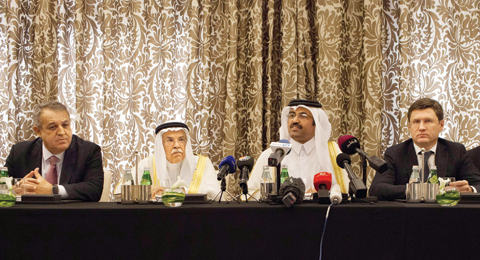BEIRUT: From Lebanon, Palestinian Fatima al-Ashwah has been praying for relatives in Gaza, but received grim news that Zionist bombing killed around 12 of them days before a temporary truce between the Zionist entity and Hamas. “They bombed their house,” leaving some of them “in pieces,” said Ashwah, drained by weeks of anguish and days of grief.
She is among an estimated 250,000 Palestinian refugees living in Lebanon, most of them in poverty, according to the United Nations. When AFP first spoke with Ashwah, 61, earlier this month from southern Beirut’s Burj al-Barajneh Palestinian refugee camp, she had expressed grave fear for the safety of about 70 extended family members in the Gaza Strip whom she had visited in July.
She was later told that Zionist bombardment had killed her cousin’s daughter Sanaa Abu Zeid, 30, along with Abu Zeid’s daughters aged 12, eight and six, and other relatives who were in the same building. “Around a dozen people were killed,” she said.

‘Under the bombs’
Abu Zeid and her family had taken refuge in a school in Rafah in the south of the Gaza Strip. But they returned to their home in northern Gaza — still standing, unlike those of some other family members — because the children weren’t coping at the shelter, Ashwah said. Abu Zeid’s husband and their three other children survived because they had been wounded in bombing the day before, one losing a leg, and were in hospital when the house was hit, Ashwah said. “They buried them together in a mass grave,” Ashwah said, with Abu Zeid’s devastated mother unable to pay her final respects.
Ashwah showed photos and video taken before the bombing of smiling members of the family, including Abu Zeid’s daughter Nour al-Moqayyed, aged six, dancing. Abu Zeid’s husband and the surviving children fled back to Rafah “under the bombs” to reunite with Abu Zeid’s mother, Ashwah said, and were staying in a garage.
Beirut’s Burj al-Barajneh camp and others like it in Lebanon were set up after the Nakba, or “catastrophe”, when more than 760,000 Palestinians were expelled or forced to flee from their homes in 1948 to make way for the Zionist entity’s creation. A fragile four-day truce between Hamas and the Zionist entity is to expire later this week. Ashwah expressed hope that it would last, saying the family “can’t take it anymore.” “We’ve seen wars, but like this? My God, not like this.” — AFP











